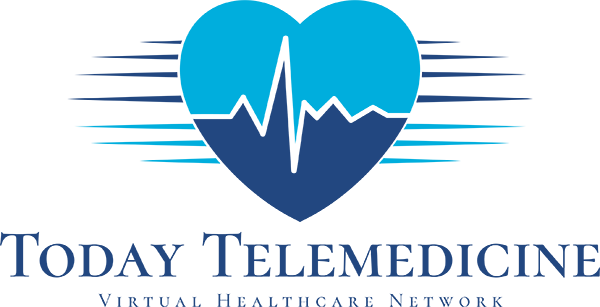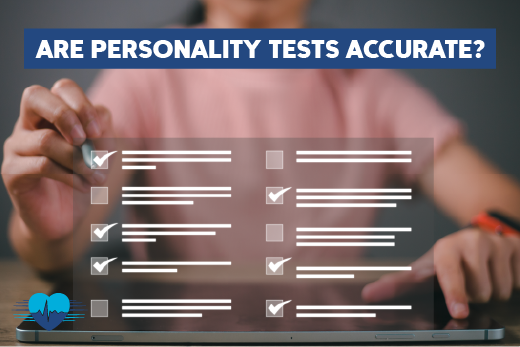In today’s fast-paced world, where digital advancements have transformed the way we connect with the world, telemedicine has emerged as a beacon of hope for individuals seeking healthcare solutions from the comfort of their homes. As the demand for telemedicine services like Today Telemedicine continues to rise, it becomes imperative to address various aspects of mental and emotional well-being, including understanding one’s personality. Personality tests have gained immense popularity, but are they truly accurate? Let’s delve into the intriguing world of personality assessments and explore the nuances that define their accuracy.
Understanding the Diversity of Personality Tests
Personality tests come in various forms, each designed to unravel specific aspects of an individual’s character. From the intriguing Inner Me Personality Insights Test to the widely known 16 Personalities Test, these assessments aim to match personal traits with predefined categories. But how accurate are these categorizations? Let’s examine the key types of personality tests and their descriptions to uncover the truth.
- Inner Me Personality Insights Test
The Inner Me Personality Insights Test is designed to delve deep into the subconscious, offering profound insights into your inner self. It delves into concealed aspects of your character, illuminating traits that you may not even recognize within yourself. While intriguing, its accuracy lies in its ability to tap into the subconscious mind, revealing subtle nuances that shape your behavior and choices.
-
16 Personalities Test
One of the most popular personality tests, the 16 Personalities Test, is based on the Myers-Briggs Type Indicator (MBTI). It categorizes individuals into 16 distinct personality types, each characterized by specific traits and tendencies. The test’s accuracy is shaped by honest self-reflection and the context of its application, despite its broad utilization. Understanding the nuances of this test is crucial for interpreting the results accurately.
-
Personnel Potential Analysis Test
The Personnel Potential Analysis Test focuses on evaluating an individual’s capabilities and potential within a professional context. In evaluating skills, aptitudes, and personality traits relevant to designated career paths, this assessment guides both employers and employees in making decisions based on comprehensive information. Its accuracy lies in aligning the assessed traits with the requirements of the job role, ensuring a harmonious match between the individual and the workplace.
-
Free Enneagram Test
The Free Enneagram Test is a dynamic tool that categorizes individuals into nine distinct personality types, each associated with unique motivations and fears. Its accuracy is contingent upon the individual’s openness to self-reflection and the test’s ability to capture subtle nuances of behavior. Understanding the Enneagram types can provide valuable insights into personal growth and interpersonal relationships.
-
Similar Minds Personality Disorder Test
The Similar Minds Personality Disorder Test is specifically designed to pinpoint potential personality disorders and the traits that often accompany them. While it can raise awareness about certain behavioral patterns, its accuracy in diagnosing clinical conditions is limited. For accurate assessments of personality disorders, it is essential to consult mental health professionals who employ comprehensive diagnostic criteria and clinical evaluations.
Ensuring Accuracy – The Crucial Factors
The accuracy of a personality test hinges on several factors:
- Context and Purpose: Understanding the purpose behind the test is vital. Whether it’s for personal insight, career guidance, or clinical assessment, the context shapes the accuracy and relevance of the results.
- Self-Reflection and Honesty: Participants need to approach the test with honesty and self-awareness. Genuine responses enhance the accuracy of the assessment, providing a more authentic portrayal of the individual’s personality.
- Professional Guidance: In certain contexts, such as career assessments and clinical evaluations, professional guidance enhances the accuracy of the results. Trained professionals can interpret the findings within a broader framework, ensuring a nuanced understanding of the individual’s personality.
- Ethical Considerations: Legality and ethics play a significant role, especially in workplace settings. It is crucial to consider the legality of personality tests in the workplace, ensuring that assessments do not infringe on an individual’s rights or discriminate based on personality traits.
How Do Personality Tests Work?
Personality tests operate by probing various aspects of an individual’s character, employing questions or tasks to unveil their preferences, behaviors, and emotions. Rooted in psychological theories, these tests categorize people into specific personality types or traits, providing valuable insights into their minds.
The Complexity of Difficult Tests
- Intricate Questions and Scenarios: Difficult personality tests pose intricate questions and scenarios, urging individuals to delve deep into their thoughts and emotions. These challenges demand genuine, introspective responses, unveiling hidden facets of one’s personality.
- Time Constraints and Pressure: Some assessments introduce time constraints and pressure, simulating real-life situations. These elements add complexity, testing not only the depth of self-awareness but also the ability to respond thoughtfully under pressure.
Your Path to Self-Discovery – Start Now with Today Telemedicine!
At Today Telemedicine, we appreciate your quest for self-discovery. Our exclusive personality quiz is meticulously design to reveal concealed aspects of your character. By presenting thought-provoking scenarios and real-life pressures, this quiz provides insights that nurture personal growth. Beyond mere questions, it offers a transformative experience, leading you to a profound understanding of yourself. Begin this enlightening journey at Today Telemedicine and unveil a healthier, happier you.
Personal Growth in the Digital Era – The Role of Personality Tests in Telemedicine
Personality tests, in their diverse forms, offer valuable insights into the complexities of human behavior. While they provide a glimpse into our inner workings, their accuracy is a product of the context, honesty, and ethical considerations surrounding their application. As “Today Telemedicine” continues to bridge the gap between individuals and healthcare professionals, understanding the nuances of personality assessments becomes essential. When approached with awareness, integrity, and professional guidance, personality tests can unlock the door to self-discovery, personal growth, and meaningful connections, enriching the telemedicine experience and fostering holistic well-being in the digital age.
FAQs
Are all personality tests reliable?
The reliability of a personality test depends on its accuracy and consistency. Reliable tests are carefully designed and validated to provide consistent results over time.
What does the 16 Personalities test reveal?
The 16 Personalities test categorizes individuals into 16 distinct personality types, offering insights into their strengths, weaknesses, and preferred communication styles.
Which personality test is considered the most reliable?
There isn’t a one-size-fits-all answer. Tests like the Myers-Briggs Type Indicator (MBTI), Enneagram, and Big Five Personality Test are widely used and respected, each offering unique insights.
Are there personality tests specifically tailored for career counseling?
Yes, some tests like the Personnel Potential Analysis Test are crafted to evaluate an individual’s potential, skills, and suitability for specific career paths, aiding career counseling professionals in their assessments.





